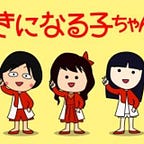“Harukaze” by Leo Ieiri (2018)
from the album Time (2018) | Listen to it on YouTube / Spotify
During the first few hours of my 10-hour flight to Japan, I checked out the airline’s Japanese-music playlists to pass the time. Each selection was broken down by decades starting from the ’70s, and I first scrolled through J-Pop Now partly to see if my understanding of present-day J-pop was actually in tune to what was actually currently popular. Familiar names were present: Arashi, Kana Nishino, Kenshi Yonezu’s “Lemon,” Daichi Miura’s duet with Ayaka, E-girls, my favorite Perfume. And my knowledge of J-pop now was proven especially correct once I recognized Leo Ieiri’s “Harukaze” in the list.
I have a slight soft spot for tracks like Ieiri’s “Harukaze,” or “Spring Wind,” which sings about a regret for a by-gone love that the song’s protagonist couldn’t quite confess to in the past. Every other lyric is so sweet in its sentimentality: “In the beginning I didn’t even think I would even like you,” she begins her verse. The pain and disappointment felt in the present get covered up by a huge string sweep built to play with your heart strings. The wholesomeness isn’t the most fashionable style in pop music, frankly, but if you’re in the mood, it uplifts like no other.
I discovered Ieiri first via the internet, from Tumblr blogs focused on J-pop. Her popularity was hard to gauge with only social media traction available as a measure. Her contemporary Kana Nishino was easier to track with her name appearing on many music shows that also featured other familiar J-pop stars. But like Nishino, Ieiri had tangible accolades of her own such as Best New Artist to back her status up.
Stylistically, her music isn’t anything too new. She follows traditions of an adult-contemporary sound that has long proven durable in J-pop this century. I group her music with artists like Nishino or Miwa, who became crowd favorites in Japan around the turn of the last decade with this earnest, acoustic-guitar-clad pop sound. But as visible as these women may be on Japanese TV or the Oricon charts, I don’t find them mentioned in media abroad. These major-label singer/songwriters ironically seem like niche concerns looking at Western media, their music relegated more to coverage by fans on Tumblr or Twitter.
Part of it is probably due to the lack of fashionable quality in their music. Nishino and Ieiri’s songs are some of the least offensive music, and they are both popular in Japan to the point their songs can slip unassumingly in the background of everyday life; they make perfectly good grocery-store music. They obviously lack underground edge, and sentimental lyrics don’t exactly win attention of Western audiences especially because of a language barrier.
But a song like “Harukaze” is unmistakably pop in its country of origin. J-pop sometimes get thrown around to describe a singular sound — I’m thinking of a hyperactive, sugary-sweet electronic-pop sound in the mold of Yasutaka Nakata productions — when really it is an umbrella term that encompasses a diverse range of sounds and styles. And to me, the music made by Ieiri more accurately sums up J-pop this past decade. Many more artists have complicated the identity of J-pop, of course, but something like “Harukaze” has sounded the most lasting and, really, Japanese.
